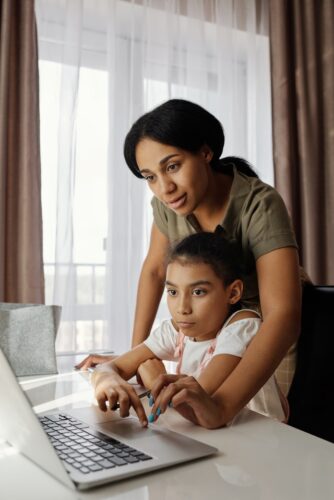Reveals Psychologist and Marriage Counselor Shivani Misri Sadhoo
In several cultures marriage is considered a sacred bond that binds 2 individuals together. While a lot of people wait their whole life to be together forever with the person they love, the reality may be different for some others. For certain people, however, the boundations of marriage are literally scary as hell. This type of irrational fear of getting married or committed is called gamophobia.
It has been obtained from the Greek word “gamos” meaning marriage. Psychologist Shivani says gamophobia is displayed by intense, irrelevant, and continuous fear of marriage and commitment. The individual is specifically scared to get into a marriage which means spending the whole life with a single person.
A gamophobic individual’s fear of marriage is similar to the fear of dying. A gamophobic person might be in a relationship with someone, but move away and get nervous if the topic of marriage crops up. This phobia is completely different from Anuptaphobia – fear of being single and Philophobia – fear of falling in love.
This blog by India’s top Psychologist and Marriage Counselor, Shivani Misri Sadhoo reveals about Gamophobia and what are its causes signs, and treatment.
What Causes Gamophobia
Gamophobia is quite a common phobia that happens in people, specifically men. Men tend to fear marriage because of the factors such as the personal, financial, and social risks that come along with marriage. Thus, gamophobia can be caused by the following:
Personal Instability
Personal instability or insecurity can be a big cause of gamophobia in people. Marriage doesn’t happen easily. Several responsibilities are added. You don’t share simply a relationship, but you share all your personal, social, financial, and legal belongings. The fear of marriage could be developed out of the fear of all or any of these risks and vulnerabilities.
Connected Distressful Incident
Gamophobia can also be linked with any unwanted and distressful occurrence that implanted a negative impact of marriage on an individual’s mind. These incidents could range from the divorce of parents during childhood, violence from parents, having seen one’s parents or other married couples fight and argue, a previous marriage failure, betrayal by a partner, or hearing regarding unsuccessful marriages extensively. Any such incidents can be responsible for gamophobia in people.
Depression
The fears of marriage and commitment can also happen due to other depressive conditions. A person might actually be willing to marry, but simply scared and anxious to go through it. Lack of self-belief, poor self-image, lack of sexual confidence, and other forms of depression may also make a person stay away from marriage and commitments.
Signs of Gamophobia
Some of the prominent signs that may happen in the people having gamophobia both in the case of men and women are:
· Irrational and extensive fear of marriage and commitment. Even a slight thought of marriage or seeing someone getting married can trigger this fear.
· Totally staying away from marriage and related events or discussions.
· Aggression, panic attacks and quick-temper upon the slightest thought or discussion of one’s marriage.
· Feeling that the fear is irrational but not manageable to control.
· Low-self-esteem.
· Panicking follows physical symptoms like trembling, crying, trouble in breathing, rapid heartbeat, nausea or vomiting, dizziness, fainting, sweating profusely, and abdominal discomfort.
When to See a Psychologist or a Counselor
Gamophobia can become a serious issue as it can lead one to stay isolated. A gamophobic person is simply scared of the thought of marriage, but not unwilling to do so. The fear can greatly damage relationships and family life of a person. In those circumstances, consulting with a psychologist or counselor is necessary. Moreover, if the above said symptoms have happened for a long time period, over 6 months, and disrupted the life of an individual, one requires to begin with the treatment.
How It Can Be Treated
Gamophobia can be treated using various psychotherapies and medications. Some of the effective psychotherapies for successful elimination of this fear are:
CBT (Cognitive Behavioral Therapy)
CBT is 1 of the most impactful treatment therapies for gamophobia. Gamophobia might be related to a past distressful memory and experience. The behavioral therapist treats the person and tries to dig out the negative thoughts 1 has towards marriage. A gamophobic individual tends to have a rush of fear because of the negative and disturbing images linked with marriage, and not due to marriage straight away. The counselor conducts healthy talking and sharing sessions and helps to replace those negative images with positive ones.
Exposure Therapy
This therapy is also another good psychotherapy used for the treatment of gamophobia. In exposure therapy, the counselor makes the person confront a setting the same as in a marriage or brings up topics to discuss marriage. Alongside this, the psychologist also guides the person to keep himself calm and relaxed in the session. Through regular sessions, the person gets accustomed to it and will be able to form tolerance for anxiety.
Family Therapy
Family therapy is a crucial component during this whole treatment process. The counselor works with the family and makes them aware of the phobic condition. In fact, the counseling sessions with family forms support and motivation for the individual from family sources. This can be a huge lift up for the complete treatment process.
Medication
In extremely serious cases of isolation and anxiety, medications may be used. Normally used medicines are anti-anxiety and anti-depressants. However, therapies are regarded as more effective for the treatment of gamophobia.
Your Counselor Is Now Just Skype/Video Call Away
During the current challenging time, it’s common to experience anxiety, depression, sleeplessness, and relationship challenges at home. While you are under lockdown and maintaining social distancing norms to help the country to control COVID-19 spread, your very own counsellor Shivani is now just a call and Skype video call away from you.
However, in this age of coronavirus, we hope to offer our therapeutic help. Change is difficult for all of us and changing the way you meet with your therapist is no exception. But try it before you disregard this option. This is a challenging moment in time, and fears and anxieties are running high.
You may find, telepsychology isn’t a second-rate option. Instead, it’s an effective and efficient upgrade to a valuable service!
Feel free to call Counselor Shivani Misri Sadhoo at +91-8860875040 for telephonic or video support and to book an online counselling session to address any relationship issues, emotional and psychological challenges.

